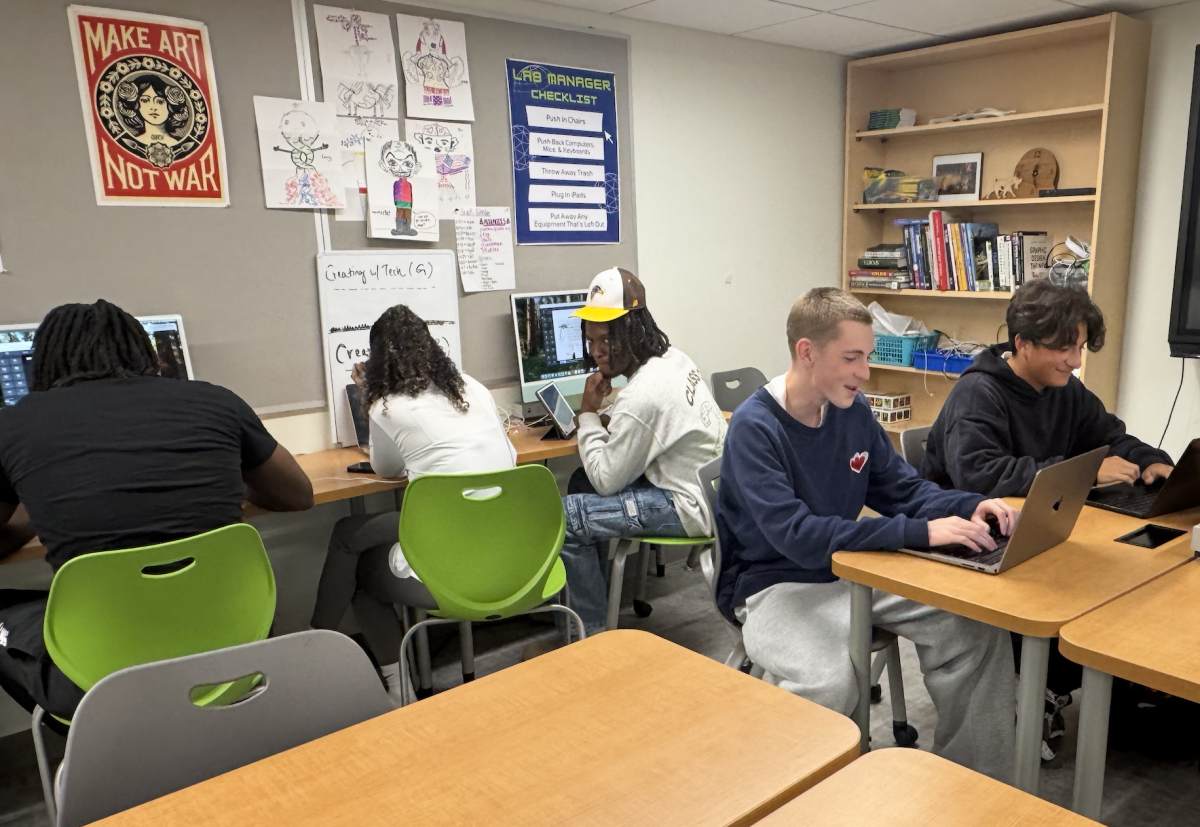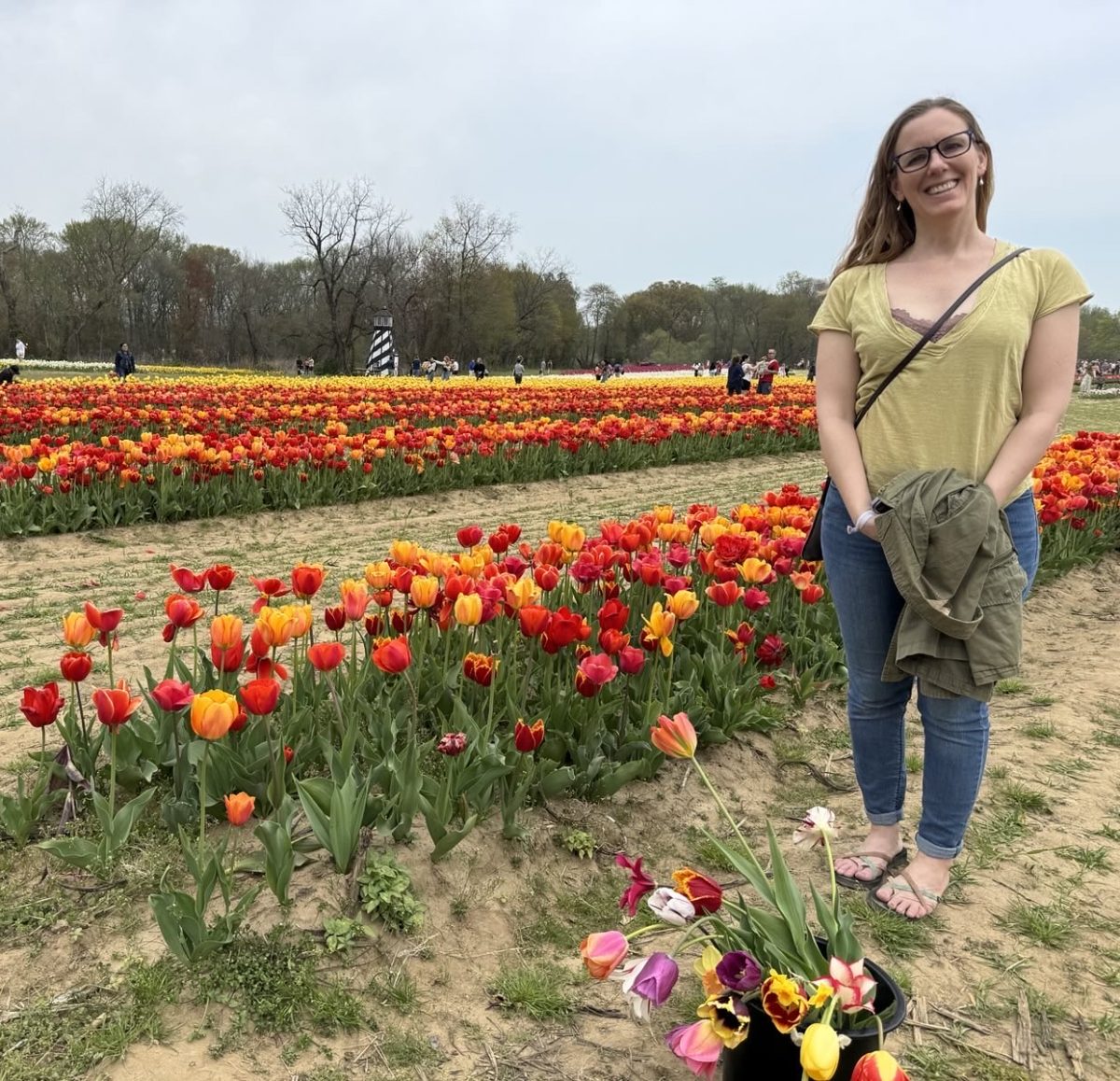For each assignment, there are two excerpts of essays that were written and submitted by real FSS students for real assignments. One excerpt was written by ChatGPT, given the exact same prompts that students were given.
Can you identify the AI-generated essay paragraph?
Check the comments for the answers and be sure to respond to the poll at the end!
Assignment 1: Ninth Grade The Catcher In The Rye final essay
Excerpt A:
The Catcher in the Rye by J.D. Salinger is a novel about a teenage boy named Holden Caulfield who struggles to find his place in the world. After getting kicked out of his prep school, Holden spends a few days in New York City, trying to figure out what to do with his life. Throughout the story, he feels lost, confused, and disconnected from the people around him. The novel explores important themes like growing up, feeling lonely, and trying to protect innocence. Holden’s journey helps readers understand how hard it can be to grow up and face the adult world.
Excerpt B:
Imagine the main character of your favorite book gone awry. Instead of being likable, he is selfish, rude, and judgmental. This is Holden Caulfield, the protagonist of J.D. Salinger’s, The Catcher In The Rye. In the novel, Holden gets kicked out of his boarding school, Pencey Prep, and decides to run away and adventure through 1950s New York City during Christmas. He encounters many people including his classmate’s mom, a prostitute, and an old friend, many of which are either judged or affected by Holdens irresponsible and disrespectful behavior as well as his selfishness. Holden acts as his own antagonist, through his behaviors and actions. Holden is an Anti-Hero because he often goes through existential crises and makes unfavorable decisions prioritizing himself.
Excerpt C:
What does it mean to escape from the unfavorable life you are living? For Holden Caulfield, the protagonist of Catcher in the Rye, this means running away from your problems. Holden is an unstable teenager who frantically escapes from his boarding school, Pency Prep. This leads him to New York City, where he rashly flies through his money, purchasing taxis, hotel rooms, and substances such as alcohol and cigarettes. He even hires a prostitute. Holden always feels the need to escape from his reality, this is to try to distract himself from the unresolved trauma weighing him down.
Assignment 2: Tenth Grade Emissary essay
Excerpt A:
Throughout the novel’s recounting of Mumei’s and Yoshiro’s daily interactions, readers see that the human instinct to evolve and adapt for survival will persist no matter the circumstance. As the text states “Yoshiro was starting to think that maybe the way human beings had always walked upright on two legs wasn’t the best way after all” (108). Walking is a defining part of human evolution. It is often seen as mankind’s greatest achievement. So for Yoshiro to rethink something so fundamental shows how evolution continues even in this harsh new world. This moment where Yoshiro is rethinking Humans walking, highlights how humans will continue to evolve mentally and physically. Mumei’s generation might eventually have to adapt to a form of movement besides walking. While the Yoshiro’s generation will have to learn to accept that this new generation is dramatically changed. Mumei’s generation will evolve more physically while Yoshiro’s will have to evolve mentally, but both generations are evolving. However Yoshiro’s generation might find it harder to evolve because they suffer from nostalgia from the ‘better days’ before Japan’s isolation. However Yoshiro being able to shift his thinking suggests that nothing is beyond reimagining if it is for survival. The older generation who once viewed certain ideas as unchangeable, now find themselves reimagining these ideas in order to survive. Yoshiro changing his thinking illustrates how humans will evolve no matter their age or circumstance in order to survive.
Excerpt B:
The generational gap in Tawada’s post-apocalyptic Japan is more than a biological phenomenon – it is a societal phenomenon that is illustrated in Yoshiro’s thoughts as he does his best to raise a great-grandson who he struggles to understand. Because the only reality that Mumei knows is nearly unrecognizable from what Yoshrio knows, Yoshiro struggles to connect with his great-grandson and understand him. Yoshiro, aiming to provide guidance and wisdom to Mumei, as any elder would, finds that because Mumei’s experiences are infinitely different from his, and that Japan is not at all as it was in Yoshiro’s day, he cannot provide his great-grandson with any meaningful advice. In confronting this new reality, “Yoshiro had to admit it: what he had taught his grandson had been all wrong” (Tawada 40). Yoshiro’s lessons to his great-grandson are not purely dated as the advice of elders can be, but are entirely incorrect. This shows that Mumei’s existence and the reality of this new Japanese society is not just evolved – it is fundamentally separate. This separation is what causes the generational divide between the elders and their great-grandchildren.
Excerpt C:
The Emissary by Yoko Tawada is a strange but powerful story set in a future Japan after a big disaster. In this world, children are very weak and sick, while old people are strong and healthy. The story follows Yoshiro, a very old man, and his great-grandson Mumei, who is fragile and needs lots of care. Even though the world around them is falling apart, Yoshiro stays hopeful and tries to give Mumei a good life. The book talks about family, the environment, and how people survive even in hard times. Tawada’s writing is simple but full of emotion, mixing sadness with humor. The Emissary makes readers think about the future and what it means to take care of each other.
Assignment 3: Eleventh Grade The Great Gatsby essay
Excerpt A:
In addition to Daisy’s unavailability, the uneven balance in their feelings for each other further drives Gatsby’s obsession. Throughout the book, Gatsby consistently and constantly shows his “love” for Daisy, but never receives the same amount from her. After the events with Tom and Gatsby, Daisy and Tom leave for Chicago. Nick then thinks, “She vanished into her rich house, into her rich, full life, leaving Gatsby — nothing. He felt married to her, that was all.” (149) Gatsby has completely emotionally attached himself to Daisy to the point where he feels “married to her”. Throughout the years of him obsessing over her, he developed a loyalty for her that she would never have for him. She could leave Gatsby behind so easily, in a way that he wouldn’t be able to do to her. This feeling of Gatsby not receiving as much attention as he gives her, drives him to obsess over her more, in an attempt that she’ll finally be as much in love.
Gatsby wanted her to feel “full” with him as much as she fulfilled him. However, Daisy is superficial and only cares about the money and the life Tom can give her. Gatsby is aware that he can’t offer Daisy as much as Tom can. Gatsby knows that he’s a fraud, and what seems like a well-put-together life is messy, and built off crime. An example of this is when Nick says about Gatsby, “he had deliberately given Daisy a sense of security; he let her believe that he was a person from much the same stratum as herself — that he was fully able to take care of her.” (149) His new life is messily put together for the sake of Daisy. He becomes aware that the truth can come out any second, which is why it’s so urgent for him to win over Daisy.
Excerpt B:
The novel’s climax further reinforces the motif of moonlight as an illusion that leads to downfall. On the night of Myrtle’s death, Gatsby waits outside Daisy’s house, watching over her window in the moonlight. Nick describes the scene, stating, “He was clutching at some last hope and I couldn’t bear to shake him free” (146). The moonlight here casts Gatsby in a ghostly, almost tragic light, emphasizing his delusion that Daisy will choose him. His desperate watchfulness mirrors his earlier reaching for the green light, illustrating how he remains trapped in his illusion until the very end. The moon, often associated with dreams, now casts a somber glow over Gatsby’s inevitable fate.
Ultimately, Fitzgerald uses the motif of moonlight to explore the dangers of living in illusion. Gatsby’s dream of rekindling his past with Daisy is as fleeting and insubstantial as moonlight—it can create a beautiful illusion, but it has no lasting substance. The deceptive glow of wealth and grandeur blinds characters to reality, leading to their downfall. Through this imagery, Fitzgerald critiques the American Dream, showing how the pursuit of an unattainable ideal can lead to self-destruction. Just like Gatsby’s dream, moonlight may offer a moment of beauty, but it can never truly illuminate the path to fulfillment.
Excerpt C:
In the book, some dark scenes also appear with a small amount of brightness, which reveals Gatsby’s nervousness and entanglement in expressing himself to Daisy. When Daisy visits Gatsby’s house for the first time, they go into the music room.
In the music room, Gatsby turned on a solitary lamp beside the piano. He lit Daisy’s cigarette from a trembling match, and sat down with her on a couch far across the room, where there was no light save what the gleaming floor bounced in from the Hall. (94)
“solitary lamp” suggests a small amount of light, revealing that Gatsby is scared to fully express his desire and love to Daisy. He can only express a little bit of how much he cares about her by lighting her a cigarette. Gatsby and Daisy are also sitting on a couch that is “far away” from the spotlight of the hall, creating an atmosphere in which they’re isolated from other people, including Nick and the pianist. The mere light also represents this unrevealed, secret love. When Gatsby uses the “trembling match” to light Daisy’s cigarette it hints that the person who holds the match, Gatsby, is trembling, showing his nervousness, treating Daisy as carefully as something fragile. The background is dark, and there’s only a little bit of light, showing Gatsby’s entanglement of whether or not he should express his love for Daisy. And the light comes from his excitement for being with Daisy. After the party at Gatsby’s house, Nick and other people are sitting in front of Gatsby’s house. He says, “It was dark here in front; only the bright door sent ten square feet of light volleying out into the soft black morning”(107). There’s only a small amount of light coming out of the house. It indicates that Gatsby is slightly delighted that Daisy shows up at his party. The use of small measurements like “30 minutes” and “10 square feet indicates that how happy Gatsby is depends on how much time he spends with Daisy.
Assignment 4: Common App Personal Statement
Excerpt A:
Birding has changed how I interact with the world. I notice more—subtle things, like tone shifts in conversations or when a friend’s energy feels off. I’ve learned patience from failed attempts to spot an elusive warbler and resilience from the many, many times I’ve confused a leaf for a bird and stood staring at it for five solid minutes.
Now, even when life gets hectic—college apps, exams, obligations—I know I can step outside, listen for that familiar “chick-a-dee,” and feel like myself again.
I’m currently at 97 species and counting. My goal is 100 before graduation, which is ambitious considering I’m still convinced squirrels are doing their best to sabotage me.
So yeah, I’m the bird kid now. The one who gets binoculars for birthdays and says things like “juvenile plumage” in casual conversation. But honestly? I wouldn’t trade it for anything.
Because in the end, birdwatching didn’t just teach me about birds—it taught me how to see. Really see. And not just what’s out the window.
Excerpt B:
My love for podcasts remains strong, and they are still my companions on my hour commute by train to and from school. And, of course, I have learned to read. It took me longer and more work than for most people, but I have never lost my appreciation for it. I am now an avid book listener and reader.
I think the power of podcasts is their ability to deepen an understanding of everything from world events to pop culture through stories. Podcasts fulfill my love of learning and perpetual curiosity. It excites me to learn about shrinkflation or the crash of the Silicon Valley Bank when it’s presented through a compelling story on Planet Money, the NPR economics podcast. Last year I went from being a podcast listener to a creator, by starting my own podcast for my school paper. Producing a podcast is exciting, I enjoy sorting through information and curating a storyline.
Excerpt C:
All of these experiences have taught me a variety of practical skills, like public speaking and how to plan meticulously but be spontaneous when things go unexpectedly. However, I’ve learned a lot more than that along the way. I know how to be determined and resilient while having grace for myself. I’ve realized, both from my personal experience and from working with children and their families, that I love to help people overcome challenges and that compassion can be priceless to someone who needs it. While one person’s impact on the world may be limited, as part of a community a much bigger difference can be made. It’s true that there are some parts of my story that have been unfortunate and painful. But reflecting on all that my experience has taught me, I wouldn’t change it for the world.
How did you do? Comment how many you guessed correctly, or if any tricked you. What methods did you use to try to spot the AI work? Answer the poll below.
And, just for the fun of it, we also asked ChatGPT to take a shot at guessing the answers as well. Its score? 2/4.































Sam Goldwert • Apr 11, 2025 at 10:08 AM The Falcon Pick
ANSWER KEY
Assignment 1 (9th grade Catcher in the Rye essay): Excerpt A
Assignment 2 (10th grade Emissary essay): Excerpt C
Assignment 3 (11th grade The Great Gatsby essay): Excerpt B
Assignment 4 (Common Application Personal Statement): Excerpt A